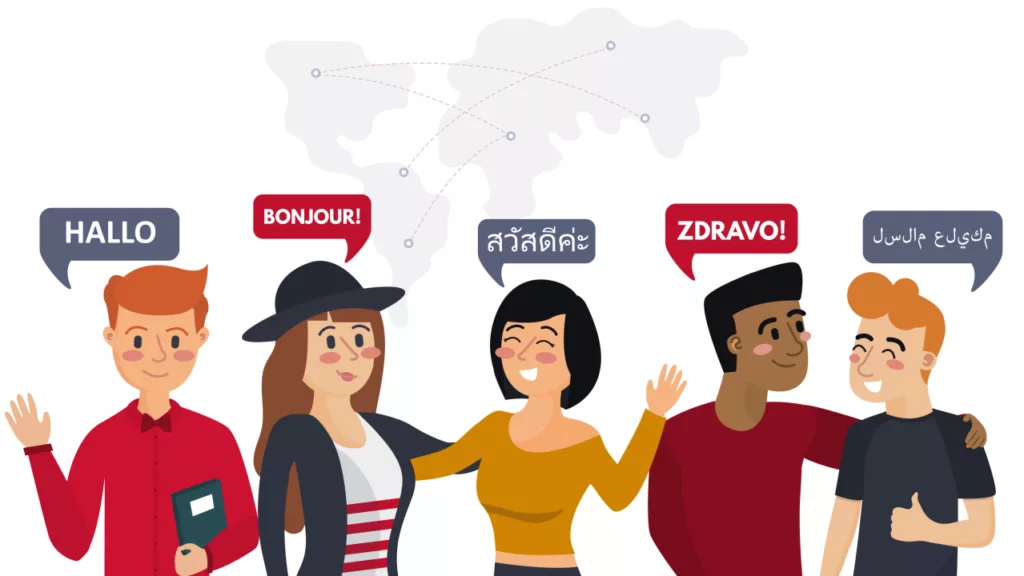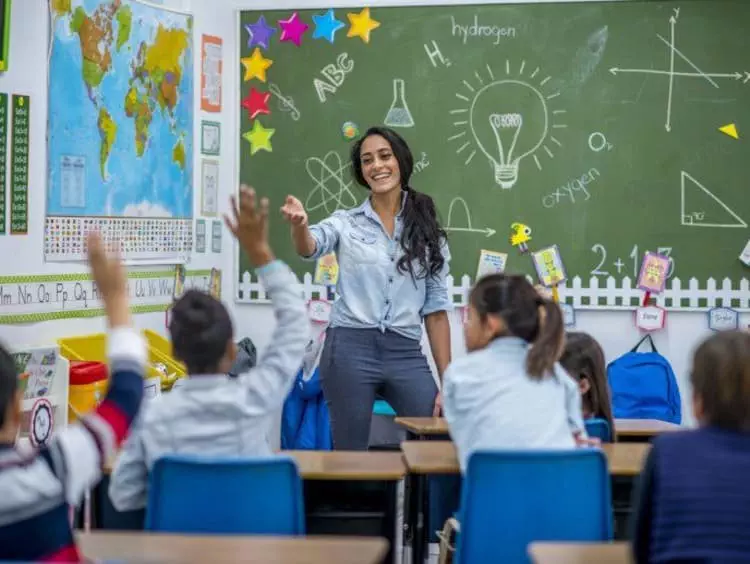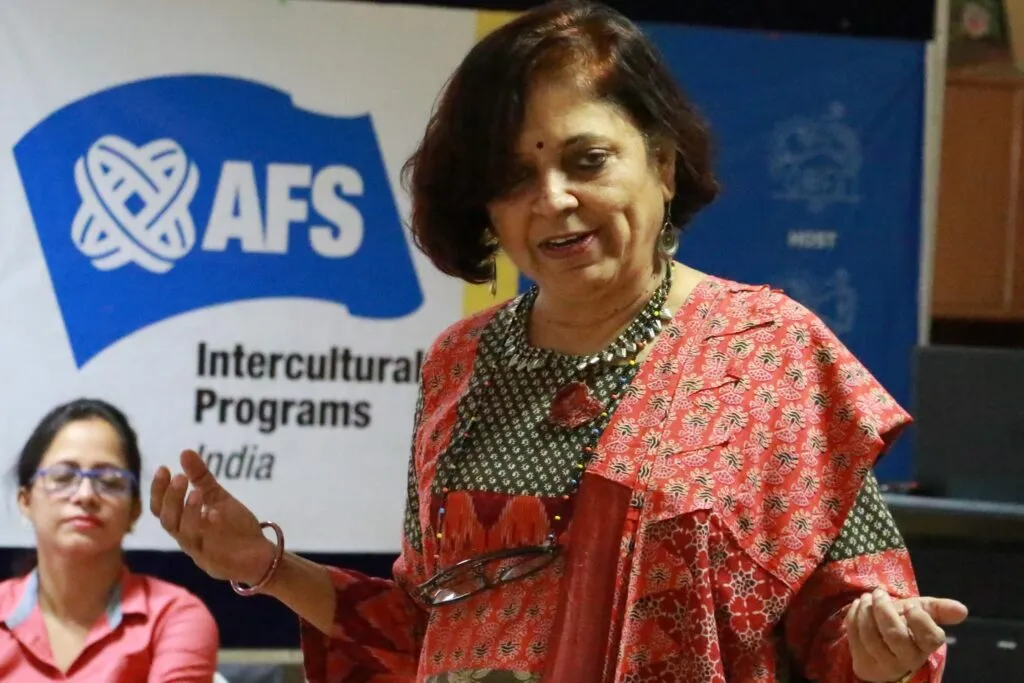In today’s globalized world, intercultural communication has become increasingly important. Students from different cultures are brought together in academic institutions, highlighting the need for intercultural program facilitators who can help students learn about and appreciate each other’s cultures. But what are the skills required to be a successful intercultural program facilitator in international education? In this article, we will explore some of the most essential skills needed for this role.
Understanding the Role of an Intercultural Program Facilitator
An intercultural program facilitator is responsible for creating an environment that promotes cross-cultural understanding and appreciation. In international education, this can be particularly challenging, as students come from various countries and cultures. The facilitator’s role is to ensure that every student feels valued, respected, and able to achieve their academic goals in a multicultural setting.
Intercultural program facilitators play a critical role in promoting diversity and inclusion in educational institutions. They help students navigate cultural differences, build relationships, and develop a sense of belonging. In doing so, they create a positive and enriching learning environment that benefits all students.
Responsibilities and Expectations
Intercultural program facilitators are expected to create an inclusive environment that welcomes all students regardless of their cultural background. They should be knowledgeable about different cultures, customs, and traditions to be able to help students understand cultural differences and appreciate diversity.
One of the primary responsibilities of an intercultural program facilitator is to create opportunities for students to engage in activities that promote cross-cultural understanding. This can include cultural festivals, language exchange programs, and intercultural workshops. By providing these opportunities, students can learn from each other and develop a deeper understanding of different cultures.
In addition to promoting cross-cultural understanding, an intercultural program facilitator should also ensure that students feel supported and encouraged to achieve their academic goals. This can involve providing academic advising, mentoring, and tutoring services. By providing these resources, students can overcome any academic challenges they may face and succeed in their studies.
Challenges in International Education
International education can present various challenges. Language barriers, cultural differences, and academic expectations are just a few examples. As an intercultural program facilitator, you must be prepared to address these challenges and identify strategies to overcome them.
Language barriers can be particularly challenging for international students. As an intercultural program facilitator, you can help students overcome these barriers by providing language support services such as language classes, language exchange programs, and tutoring. By providing these resources, students can improve their language skills and feel more confident in their ability to communicate with others.
Cultural differences can also be a challenge for international students. As an intercultural program facilitator, you can help students navigate these differences by providing cultural orientation sessions, intercultural workshops, and cultural exchange programs. By providing these opportunities, students can learn about different cultures, develop a deeper understanding of cultural differences, and build relationships with people from different backgrounds.
Academic expectations can also be a challenge for international students. As an intercultural program facilitator, you can help students overcome these challenges by providing academic advising, mentoring, and tutoring services. By providing these resources, students can receive the support they need to succeed academically.
In conclusion, intercultural program facilitators play a critical role in promoting diversity and inclusion in educational institutions. By creating an environment that promotes cross-cultural understanding and appreciation, they help students develop a sense of belonging and succeed academically. While international education can present various challenges, intercultural program facilitators can help students overcome these challenges and thrive in a multicultural setting.
Essential Intercultural Communication Skills
Effective communication is the backbone of intercultural program facilitation. As a facilitator, you must be able to communicate with students from diverse cultural backgrounds in a way that is clear, concise, and respectful. It is important to understand that communication is not just about the words we use, but also about the way we convey our message.

Intercultural communication requires additional skills beyond those used in everyday communication. Here are some essential intercultural communication skills that every facilitator should possess:
Active Listening and Empathy
Active listening is an essential skill for intercultural program facilitators. You must be able to listen actively and attentively to students, not just for the words that they say but also for the nonverbal cues they give. This helps you to understand their perspective and respond appropriately. Empathy is also crucial in creating an inclusive environment. You should be able to put yourself in your students’ shoes and understand the challenges faced by students from different cultures. This helps you to connect with your students and create a safe and welcoming space for them.
Nonverbal Communication
Nonverbal communication is a crucial aspect of cross-cultural communication. Gestures, facial expressions, and body language can convey different meanings in different cultures. You must be aware of these differences and avoid any unintentional offense. For example, in some cultures, direct eye contact is a sign of respect, while in others it may be seen as confrontational. Understanding these differences can help you to communicate more effectively with your students.
Cultural Awareness
Cultural awareness is the foundation of intercultural communication. As a facilitator, you must be aware of your own cultural biases and be open to learning about other cultures. This helps you to avoid misunderstandings and build trust with your students. It is important to be familiar with the cultural norms and values of your students, as these can influence their behavior and communication style.
Flexibility and Adaptability
Flexibility and adaptability are key skills for intercultural program facilitators. You must be able to adapt to different communication styles and cultural norms. This means being open to new ideas and perspectives, and being willing to adjust your approach to meet the needs of your students. It also means being able to think on your feet and respond to unexpected situations.
Conflict Resolution and Mediation
Conflict can arise in any multicultural setting. In international education, it’s particularly important to identify and resolve conflicts effectively and respectfully. Intercultural program facilitators should be able to mediate conflicts and help students find solutions that are satisfactory to all parties involved. This requires strong communication skills, empathy, and the ability to remain neutral and impartial.
By developing these essential intercultural communication skills, you can create a positive and inclusive learning environment for your students. Effective communication is key to building relationships, fostering understanding, and achieving success in intercultural programs.
Developing Cultural Intelligence
Cultural intelligence involves being able to understand and appreciate different cultures. This is an essential skill for intercultural program facilitators who work with students from diverse cultural backgrounds. In order to develop your cultural intelligence, it is important to go beyond the basics of cultural awareness and sensitivity and take a more holistic approach to understanding cultural differences.
Cultural Awareness and Sensitivity
Cultural awareness involves understanding different cultures, customs, and traditions. As an intercultural program facilitator, you must be knowledgeable about the cultures represented in your program and understand how cultural differences can impact communication and interactions. You should also be culturally sensitive, avoiding any behavior or language that may be disrespectful or insensitive to any culture.
One way to develop cultural awareness is to engage with members of different cultures directly. This could involve attending cultural events, participating in cultural activities, or even just having conversations with people from different backgrounds. By doing so, you can gain a deeper understanding of the nuances of different cultures and avoid making assumptions based on stereotypes or limited information.
Adapting to Different Learning Styles
Students from different cultures may have different approaches to learning. Some may prefer a more collaborative learning environment, while others may prefer individual study. As an intercultural program facilitator, you should be aware of these differences and be able to adapt your teaching style as needed to accommodate different learning preferences.
One way to do this is to incorporate a variety of teaching methods into your program. For example, you could include group work, individual study time, and interactive activities to cater to different learning styles. Additionally, you could provide students with the option to choose the learning style that works best for them, allowing them to feel more comfortable and engaged in the learning process.
Overcoming Stereotypes and Biases
Stereotypes and biases can impact how we perceive different cultures. As an intercultural program facilitator, you should be able to identify and overcome stereotypes and biases, not just in yourself, but also in your students. You should create an environment where students feel comfortable discussing any stereotypes or biases they may have and work together to overcome them.
One way to do this is to encourage open and honest communication among students. This could involve facilitating group discussions or activities that encourage students to share their experiences and perspectives. By doing so, you can create a safe and inclusive environment where students can learn from each other and challenge their own biases and assumptions.
In conclusion, developing cultural intelligence is an ongoing process that involves a deep understanding and appreciation of different cultures. As an intercultural program facilitator, it is important to not only be aware of cultural differences, but also to adapt your teaching style and overcome stereotypes and biases. By doing so, you can create a more inclusive and effective learning environment for all students.
Language Proficiency and Teaching Strategies
In international education, language is an essential aspect of intercultural communication. Intercultural program facilitators should be proficient in the language of instruction and be able to use teaching strategies that are appropriate for students from different linguistic backgrounds.

It is important for facilitators to understand the challenges that students face when learning a new language. These challenges can include grammar, vocabulary, and pronunciation. Facilitators should be patient and provide support to students as they work to improve their language skills.
Additionally, it is important for facilitators to be aware of the cultural differences that can affect language learning. For example, some cultures may be more reserved in their communication style, while others may be more direct. Understanding these differences can help facilitators tailor their teaching strategies to better meet the needs of their students.
Multilingualism in International Education
Multilingualism is a common feature of international education. Facilitators should be able to communicate with students in their native language to facilitate cross-cultural understanding. Language exchange programs and activities can also enable students to learn from each other and gain new language skills.
Facilitators can also encourage students to embrace their multilingualism by promoting the use of multiple languages in the classroom. This can help students feel more comfortable and confident in their language abilities, and can also foster a sense of inclusivity and diversity within the classroom.
Language Teaching Methods
Language teaching methods should be adapted to students from different linguistic backgrounds. Facilitators should use teaching strategies that are appropriate for students who may be at different levels of language proficiency. Active learning, where students engage with the language in real-life contexts, can be particularly effective.
Facilitators can also incorporate technology into their language teaching methods. Online resources and language learning apps can provide students with additional opportunities to practice their language skills outside of the classroom.
Encouraging Language Exchange and Practice
Language exchange and practice can be an effective way to promote cross-cultural understanding and language learning. Intercultural program facilitators can organize language practice sessions, language exchange programs, and other activities that enable students to use their language skills in a social, real-life context.
Facilitators can also encourage students to practice their language skills outside of the classroom by providing them with resources such as language exchange websites and conversation partners. This can help students build confidence in their language abilities and develop a deeper understanding of other cultures.
Conclusion
Intercultural program facilitators play an instrumental role in promoting cross-cultural understanding and creating an inclusive environment for students from different cultural backgrounds. To be successful in this role, one must possess essential intercultural communication skills such as active listening, empathy, nonverbal communication, and conflict resolution. Developing cultural intelligence by being culturally aware, sensitive, adaptable and overcoming stereotypes and biases is also essential. Finally, proficiency in the language of instruction and appropriate teaching strategies can enable successful language learning and exchange. By incorporating these skills, intercultural program facilitators can play a key role in shaping global citizenship and promoting cross-cultural understanding.
Intercultural program facilitators play a crucial role in promoting international education success by fostering cultural exchange, understanding, and collaboration among students from diverse backgrounds. These facilitators are responsible for creating a supportive and inclusive environment that promotes learning and growth for all participants. To be effective in this role, intercultural program facilitators must possess a specific set of skills and qualities that enable them to navigate across cultural boundaries and facilitate meaningful intercultural interactions.
One of the essential skills for intercultural program facilitators is strong cross-cultural communication skills. This includes the ability to communicate effectively with individuals from different cultural backgrounds, understanding cultural nuances, and adapting communication styles to suit the needs of diverse participants. Effective communication is key in building trust, establishing rapport, and resolving conflicts that may arise in intercultural settings.
Another important skill for intercultural program facilitators is cultural competency. This involves having a deep understanding and appreciation of different cultural practices, beliefs, values, and norms. Cultural competency enables facilitators to approach intercultural interactions with sensitivity, respect, and an open-minded attitude. This skill is essential for creating a welcoming and inclusive environment where participants feel valued and supported.
In addition, intercultural program facilitators must have strong interpersonal skills. Building relationships with participants, fostering teamwork, and promoting collaboration are critical for the success of intercultural programs. Facilitators should be able to connect with others on a personal level, create a sense of community, and encourage dialogue and mutual learning among participants.
Effective problem-solving and conflict resolution skills are also crucial for intercultural program facilitators. In intercultural environments, misunderstandings and conflicts may arise due to cultural differences or miscommunication. Facilitators must be able to address these issues promptly and effectively, mediate conflicts, and find mutually agreeable solutions that promote understanding and harmony among participants.
Lastly, intercultural program facilitators should be adaptable, flexible, and resilient. Working in intercultural settings can be challenging and unpredictable, requiring facilitators to be able to quickly adjust to changing circumstances, think on their feet, and remain calm under pressure. Adaptability enables facilitators to respond to the needs and preferences of diverse participants, while resilience helps them navigate through challenges and setbacks with a positive attitude.
In conclusion, essential intercultural program facilitator skills for international education success include cross-cultural communication, cultural competency, interpersonal skills, problem-solving and conflict resolution, adaptability, flexibility, and resilience. By possessing these skills and qualities, intercultural program facilitators can create a supportive and inclusive environment that fosters intercultural learning, growth, and success for all participants involved.


